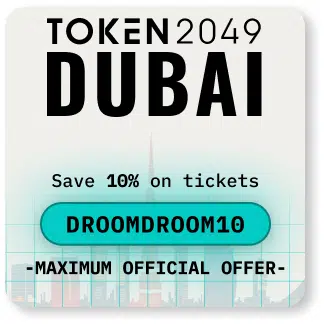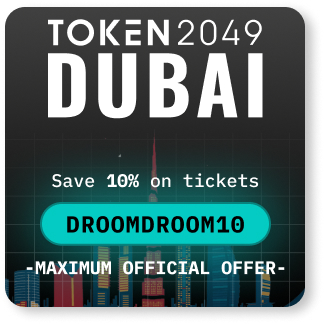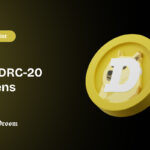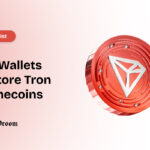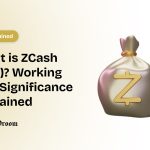As a businessman or woman who is eager or has a vision of expanding his business which is what every businessman or woman wants, well then you have to lose some to gain more. In that case either by offering a discount or using coupons and stuff like that to optimize your business, in that case gaining more customers. So you see that is basically what a Token Generation event is about. Get ready to learn all about token generation events in a swift and detailed way.
- What Is a Token?
- Token Generation Event (TGE)
- How Does a Token Generation Event (TGE) Work?
- Token Creation
- WhitePaper
- Initial Exchange Offering (IEO)
- Initial DEX Offering (IDOs)
- What Is a Blockchain?
- What Is An Initial Coin Offering (ICO)?
- Are Tokens The Same Thing As Coins?
- What Are The Different Types of Tokens?
- Conclusion
Simply speaking, a Token Generation Event is a type of optimized sales strategy in a blockchain network and its launch to the market. This technical business act of the generation of tokens can be launched normally either by a public sale, private sale, or initial coin offering (ICO).
You might have at some point in time heard or used the phrase “accept this as a token of my gratitude”, and believe me the definition of a token in the crypto market is not far from its use in this phrase. Below we will learn what a token is, then we can move on to understanding Token Generation Event. We will also learn its use and other things related to it in other words knowing why it has been generated.
What Is a Token?
Let me briefly explain what a token is before we dive in into Token Generation Event. A token is basically a thing that stands as a tangible or visible representation of a fact, quality, or a native product, etc. So, tokens in the crypto market on the other hand are digital representations of an asset or interest in something and are built on blockchain. Tokens do not contain real data back to real data, let’s take a coupon or a voucher for example, we can’t actually use them as money, but we can use them in exchange for what money can buy based on the value they hold. Imagine buying a stock of gold, you own the stock but all it does is represent the real gold and anytime you could cash out that stock for a piece of gold. So basically we can say it’s gold for trading reasons. You may as well have heard the word Tokenization, well tokenization is simply the act of using tokens. This concept is used to protect sensitive data such as credit card numbers etc.
Token Generation Event (TGE)
This is a business and technical act of limited duration that requires the special creation of the token in a blockchain-based network and its launch to the market. In general, TGE is carried out in order to crowdsource funds for new project development, by offering out its native tokens to the community on websites or cryptocurrency exchanges. So we could say this is basically a fundraising activity by an organization allowing them to gather up financial support for their new project development.
How Does a Token Generation Event (TGE) Work?
There are a series of steps to be considered before a Token Generation Event takes place. The following are steps that leads to a token generation event;
Token Creation
A token can be created by a smart contract. A smart contract is a computer program or transaction protocol expected to automatically carry out control, or record events and actions according to the terms of a contract or an agreement. This smart contract not only creates tokens but also for managing transactions of a token and for keeping the balance of each token holder.
WhitePaper
Once the token is created, the white paper is then released to the public. A whitepaper is an in-depth information document that addresses a business or as well in this case a project, explaining to the public its uses, applications, the vision and goal for its creation, and technical functions.
Individual investors examine this white paper in order to see if there are high chances of the newly created project turning into the next big stock, in other words, return profit.
Initial Exchange Offering (IEO)
This can be said to be a fundraising method in the crypto space where a start-up or project offers its tokens for sale on a crypto exchange. This crypto exchange provides them with immediate trading opportunities and it also serves as an intermediary between them and investors.
Initial DEX Offering (IDOs)
Having similarities with an IEO in the sense of being a fundraising method in the crypto space, IDO is where a project launches a token or coin via a decentralized exchange. A DEX is a type of crypto assets exchange that allows the swapping of different tokens, including crypto coins, etc. So this step does not only help raise money for the project but also makes it popular by exposing it to different communities in the crypto market.
You can also read more about top ranking DEX you should look out for in 2023
What Is a Blockchain?
A blockchain is a type of shared database that is quite different from a normal database in the way it stores data and information. A blockchain is used to store data and also help secure the history of a token. Let’s just say that a blockchain is a decentralized ledger for storing information and data. In 2021 the number of transactions on Ethereum surpassed the number of Bitcoin transactions for the first time. Being the backbone of so many different cryptocurrencies and token infrastructure, it is now considered to be the largest blockchain network in the world.
What Is An Initial Coin Offering (ICO)?
This is a type of fundraising method in the crypto space, where a start-up or project where investors can buy into the initial coin offering to receive a new cryptocurrency token issued by the company. This means that an ICO does not need a crypto exchange as a bridge between them and the investor or the public, it is its own crypto exchange. The first ICO was held by Mastercoin in July 2013. Ethereum raised money with a token sale in 2014, raising around 31,000 BTC in July, equal to approximately $18.3 million at the time. The platforms list upcoming ICOs are called Initial Coin Offering Calendars.
You can also read more about Initial Coin Offering Calendars
Are Tokens The Same Thing As Coins?
Most people often mix up coins for tokens. Despite having many similarities, there is a major difference between a token and a coin, and for you to understand more about the whole token generation event thing you have to know the difference between the two. A coin uses its own blockchain to keep track of its data, while a token uses an existing blockchain to keep track of its data. In other words, coins are native to their own blockchain while a token uses an already-made coin blockchain as its own infrastructure basically paying rent without the creators actually having to worry about creating or writing the full code of a blockchain and worrying about how it should be validated. Take Ethereum and Brave browser for example, Ethereum is its own blockchain that both stores its value and validates decentralized transactions but Brave is a web browser that has its own token, that rewards users for watching ads and promoting content creators but relies on the Ethereum blockchain as the backbone of its infrastructure. We all can agree that ads are tiresome to watch but imagine watching them for rewards. A team of dApp programmers can migrate from a token to a coin if they decide their project is growing quickly enough.
Note: You can not transform a token straight into a coin, you can create a coin that functions the same way and then create a bridge that will allow users to swap out their previous tokens for the new coins.
What Are The Different Types of Tokens?
Now that we know what a token is, let’s move forward to knowing the different types of tokens. Tokens can be classified in many ways, there is no unified classification or grouping of tokens. Here I’ll be classifying them based on their uses;
- Platform Tokens.
- Security Tokens.
- Transaction Tokens.
- Utility Tokens.
- Governance Tokens.
There are other tokens like NFTs, you can read about them on Droomdroom
Platform Tokens
These tokens are made to support a decentralized application (Dapps) on the blockchain. Platform tokens actually gain from the blockchain they build upon by getting more security and being able to facilitate transactions. You see, UniSwap is a decentralized application that allows users to swap out Ethereum tokens for other Ethereum tokens, and by being built upon an Ethereum blockchain, it benefits from the high level of security the Ethereum blockchain has. Although UniSap is a decentralized application, it has its own token, the UniSwap token which is given out to those who invest in their platform. This token is given out to those who invest in their platform.
Security Tokens
Security tokens are minted to represent mentored ownership of an asset, such as stocks, real estate, and many more. The value of a security token is proportional to its asset’s value. Yes, security tokens are equal to their assets’ value, but only when representing ownership of an off-chain asset like companies, real estate, etc. Take, for example, you wanted to buy gold but you don’t actually want to hold the gold. Someone could create a token that is tagged to the price of gold, instead of actually owning the gold, you own a representation of it, which is technically much safer because hacking into an Ethereum token is a lot harder than breaking into someone’s house.
Note: There has to be a real asset behind it.
Transaction Tokens
Transaction or payment tokens are tokens used as a fast and easy way to transfer money. By doing so you are replacing sensitive data like credit card numbers with algorithmically generated characters or numbers. And an example of this token is xDai.
Utility Tokens
These are tokens that have their values tied to their ownership. So utility tokens are created to help fund the development of a cryptocurrency which later can be used to purchase goods or services offered by the creator or issuer. An example of a utility token is the Basic Attention Token (BAT).
Governance Tokens
Governance tokens allow users to vote on certain things, like allowing them to vote on a platform’s monetary policy and so on. In general, governance token users can actually determine the future of an organization or a blockchain ecosystem to a certain level. The more tokens you hold the more voting power you have. An example of this token is UniSwap.
Conclusion
Carrying out a Token Generation Event is a complicated but rewarding process. It provides you with the ability to raise significant capital quickly and tap into the pool of crypto investors. However, it requires careful planning, considering the fact that Tokens can be hacked and stolen. You should choose your launchpad platform (blockchain) wisely, so as to get a more stable and secure network. Your whitepaper is highly important, so it should be well-written and contains the problems you are addressing and its solution. Your white paper should be transparent but persuasive in order to provide enough information and convince your investors to make an informed decision.





